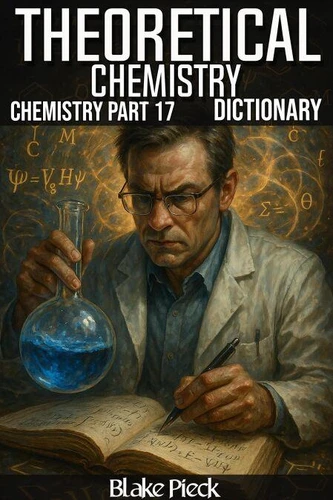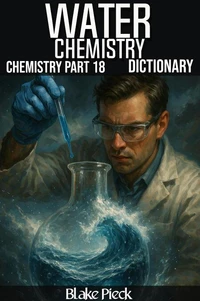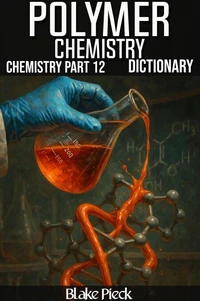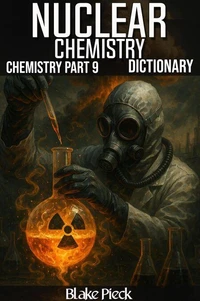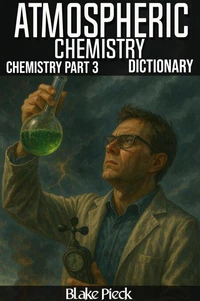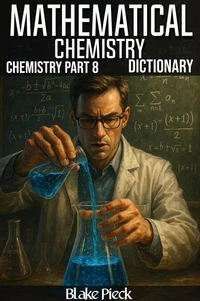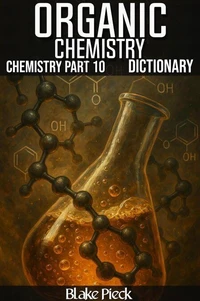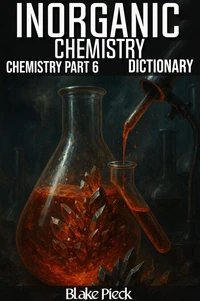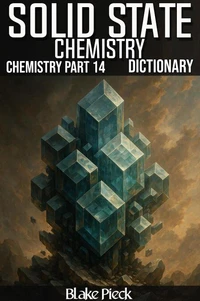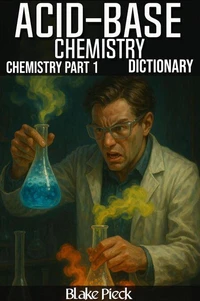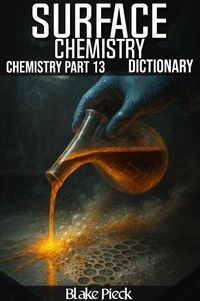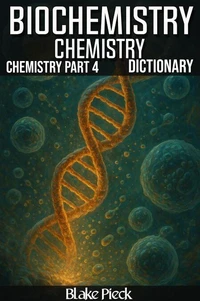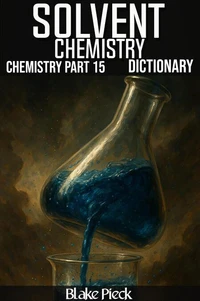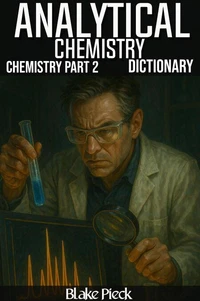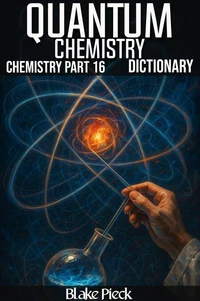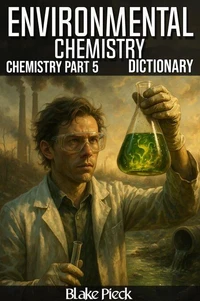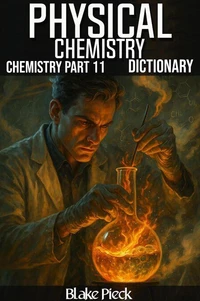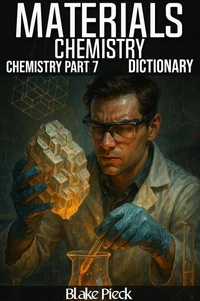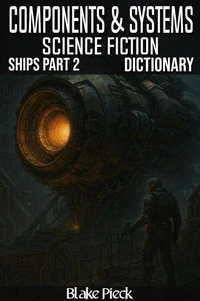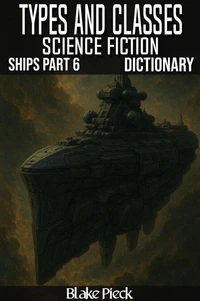Nouveauté
Theoretical Chemistry - Chemistry Part 17 Dictionary. Grow Your Vocabulary
Par :Formats :
Disponible dans votre compte client Decitre ou Furet du Nord dès validation de votre commande. Le format ePub est :
- Compatible avec une lecture sur My Vivlio (smartphone, tablette, ordinateur)
- Compatible avec une lecture sur liseuses Vivlio
- Pour les liseuses autres que Vivlio, vous devez utiliser le logiciel Adobe Digital Edition. Non compatible avec la lecture sur les liseuses Kindle, Remarkable et Sony
 , qui est-ce ?
, qui est-ce ?Notre partenaire de plateforme de lecture numérique où vous retrouverez l'ensemble de vos ebooks gratuitement
Pour en savoir plus sur nos ebooks, consultez notre aide en ligne ici
- FormatePub
- ISBN8231827961
- EAN9798231827961
- Date de parution01/09/2025
- Protection num.pas de protection
- Infos supplémentairesepub
- ÉditeurWalzone Press
Résumé
Theoretical chemistry develops models and frameworks that explain the behavior of chemical systems and predict their properties. It uses mathematics, physics, and computational tools to build theories that describe bonding, structure, and reactivity at scales ranging from single molecules to complex networks. By focusing on concepts rather than direct measurement, this field allows scientists to explore possibilities beyond the reach of experiment alone.
In the broader chemical sciences, theoretical study provides the foundation upon which many specialized areas depend. It connects closely with quantum chemistry, statistical mechanics, and computational chemistry, while also guiding experimental research through predictions and simulations. By uniting abstract reasoning with practical outcomes, theoretical chemistry demonstrates how ideas become instruments for discovery.
This dictionary organizes the terminology of theoretical chemistry into clear and structured entries. It includes concepts such as potential energy surfaces, molecular dynamics, approximations, and mathematical models that shape the understanding of chemical systems. Each entry is written with depth and context, designed to assist students in study, support educators in teaching, and provide researchers with a reliable reference in their work.
A dictionary format encourages systematic learning, reinforcing the exact language needed to navigate a highly conceptual field. Revisiting definitions strengthens memory and builds connections across topics, helping readers move from fundamental theory to advanced application. With theoretical chemistry at the crossroads of science and mathematics, fluency in its vocabulary equips learners to engage with one of the most forward-looking branches of chemistry.
In the broader chemical sciences, theoretical study provides the foundation upon which many specialized areas depend. It connects closely with quantum chemistry, statistical mechanics, and computational chemistry, while also guiding experimental research through predictions and simulations. By uniting abstract reasoning with practical outcomes, theoretical chemistry demonstrates how ideas become instruments for discovery.
This dictionary organizes the terminology of theoretical chemistry into clear and structured entries. It includes concepts such as potential energy surfaces, molecular dynamics, approximations, and mathematical models that shape the understanding of chemical systems. Each entry is written with depth and context, designed to assist students in study, support educators in teaching, and provide researchers with a reliable reference in their work.
A dictionary format encourages systematic learning, reinforcing the exact language needed to navigate a highly conceptual field. Revisiting definitions strengthens memory and builds connections across topics, helping readers move from fundamental theory to advanced application. With theoretical chemistry at the crossroads of science and mathematics, fluency in its vocabulary equips learners to engage with one of the most forward-looking branches of chemistry.
Theoretical chemistry develops models and frameworks that explain the behavior of chemical systems and predict their properties. It uses mathematics, physics, and computational tools to build theories that describe bonding, structure, and reactivity at scales ranging from single molecules to complex networks. By focusing on concepts rather than direct measurement, this field allows scientists to explore possibilities beyond the reach of experiment alone.
In the broader chemical sciences, theoretical study provides the foundation upon which many specialized areas depend. It connects closely with quantum chemistry, statistical mechanics, and computational chemistry, while also guiding experimental research through predictions and simulations. By uniting abstract reasoning with practical outcomes, theoretical chemistry demonstrates how ideas become instruments for discovery.
This dictionary organizes the terminology of theoretical chemistry into clear and structured entries. It includes concepts such as potential energy surfaces, molecular dynamics, approximations, and mathematical models that shape the understanding of chemical systems. Each entry is written with depth and context, designed to assist students in study, support educators in teaching, and provide researchers with a reliable reference in their work.
A dictionary format encourages systematic learning, reinforcing the exact language needed to navigate a highly conceptual field. Revisiting definitions strengthens memory and builds connections across topics, helping readers move from fundamental theory to advanced application. With theoretical chemistry at the crossroads of science and mathematics, fluency in its vocabulary equips learners to engage with one of the most forward-looking branches of chemistry.
In the broader chemical sciences, theoretical study provides the foundation upon which many specialized areas depend. It connects closely with quantum chemistry, statistical mechanics, and computational chemistry, while also guiding experimental research through predictions and simulations. By uniting abstract reasoning with practical outcomes, theoretical chemistry demonstrates how ideas become instruments for discovery.
This dictionary organizes the terminology of theoretical chemistry into clear and structured entries. It includes concepts such as potential energy surfaces, molecular dynamics, approximations, and mathematical models that shape the understanding of chemical systems. Each entry is written with depth and context, designed to assist students in study, support educators in teaching, and provide researchers with a reliable reference in their work.
A dictionary format encourages systematic learning, reinforcing the exact language needed to navigate a highly conceptual field. Revisiting definitions strengthens memory and builds connections across topics, helping readers move from fundamental theory to advanced application. With theoretical chemistry at the crossroads of science and mathematics, fluency in its vocabulary equips learners to engage with one of the most forward-looking branches of chemistry.

